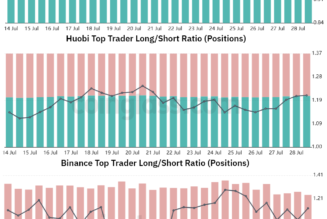
There must be “no exemptions” or “wishy-washiness” on the extent of the ban, said Han Chen, manager of the international energy policy program at the Natural Resources Defense Council. “Some [Japanese] ministries are interpreting it as saying that you can have plants with lower emissions.”
Whether Germany can commit to an earlier domestic coal phaseout will also be telling, said Steve Herz, a senior attorney and international climate adviser with the Sierra Club. Germany in recent years expended much political capital on a laborious effort among civil society groups, unions, power companies and local governments to broker a coal exit by 2038. But the European Commission’s strengthened climate targets and the German constitutional court’s April ruling that the nation’s climate goals insufficiently protect future generations will likely bring that coal deadline forward, he said.
Trade winds
Tariffs on the carbon intensity of imported goods will likely surface at the summit even though it isn’t on the official agenda, especially after draft language for the EU’s carbon border adjustment mechanism leaked last week.
Carbon tariffs are an emerging international front in the climate space given the EU’s moves to put its manufacturers on a more even playing field with foreign competitors who want to ship goods there but don’t have emissions reduction rules in their home countries — and don’t have to pay for increasingly expensive credits in the EU’s carbon market.
Biden, too, has addressed the issue, calling for a carbon border tax during last year’s campaign. But his special presidential climate envoy, John Kerry, has cautioned the EU against the approach, which the U.S. would be hard-pressed to match given the long odds of getting Congress to pass a carbon price that would align with the European system.
“It’s a tricky point between the United States and Europe,” said Samantha Gross, director of the energy security and climate initiative at the Brookings Institution.
Japan’s Ministry of Economy, Trade and Industry has begun exploring what a carbon tariff would mean for its manufacturers, said Jane Nakano, senior fellow in the energy security and climate change program at the Center for Strategic and International Studies.
Kerry, too, has said the U.S. is looking at the implications of a carbon tariff. A draft EU statement for a summit next week with the U.S. that was obtained by POLITICO noted a shared desire to “address the risk of carbon leakage,” when heavy-emitting industries relocate to areas with more permissive climate regulations.
While there is better understanding between both the EU and the U.S. of their differing political realities for carbon tariffs since the early days of the Biden administration, it’s still one with few easy solutions, Nakano said.
“My read is the Biden team isn’t necessarily rushing to start that set of issues — the whole climate-related trade issues. That’s another heavy lift,” she said.
China
The G-7 also presents a chance for nations to align messaging on climate before turning to the G-20 finance ministers meeting next month, where China’s role in issues including overseas coal finance, its continued domestic buildout of coal and allegations of forced labor in the solar panel supply chain will loom large.
“China is not terribly susceptible to pressure from … developed countries, but it does care what the developing world thinks,” Peter Betts, a former lead climate negotiator for the UK and EU who is now an associate fellow at the Chatham House, said in a media call. “And it’s quite hard to ask the developing world to put pressure on China.”
The G-7 nations already are drawing the battle lines on coal finance, Herz said. Recent announcements from South Korea and Japan — if it lives up to the spirit of the ministerial communique — would isolate China as the public lender of last resort for coal, bringing reputational risk to China’s ability to claim climate leadership.
“A whole constellation of issues around an assertive China will obviously be on the agenda,” Herz said. “But on the issue of climate, [the G-7 nations] are going to use the opportunity to push [China].”
Jacopo Barigazzi contributed to this report.









